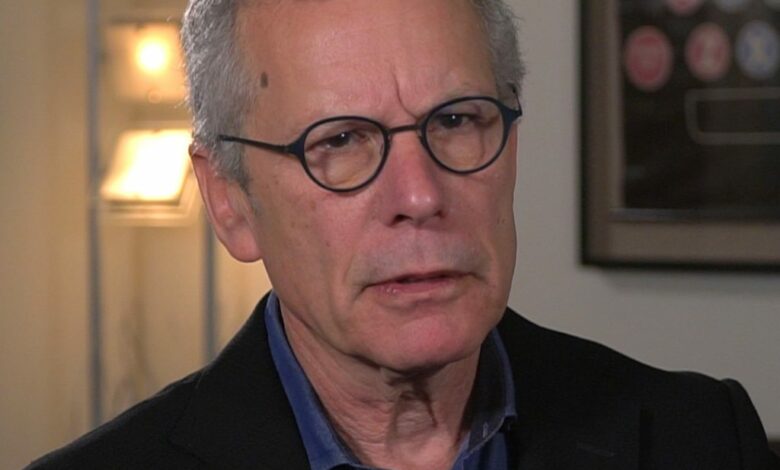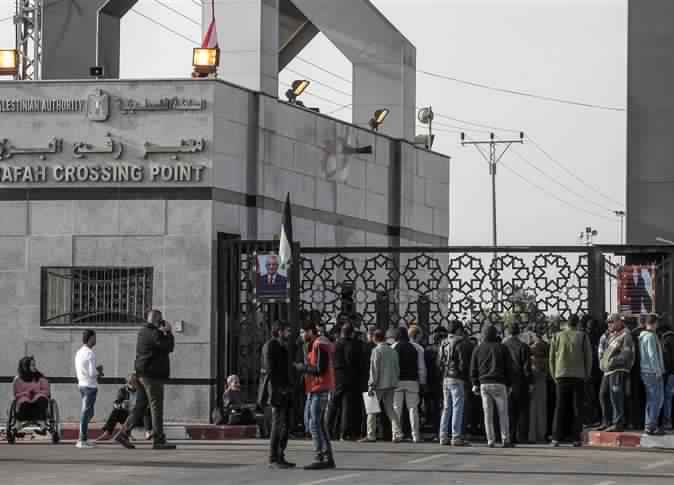
The professor of Middle Eastern history at the University of California, Los Angeles James Gelvin, told Al-Masry Al-Youm that the only solution to the current conflict in Gaza, which so far has killed over 28,000 people, is through peaceful negotiations.
He added that Hamas has successfully revived the Palestinian cause, and have complicated Washington’s exit from the Middle East.
■ Firstly, how do you see the Gaza issue being resolved in light of Israel’s continued escalation?
I believe that the solution to the conflict in Gaza will not be through conflict – negotiation must be the only way.
Israel, which has killed over 28,000 people half of whom were women and children, has set goals that cannot be achieved: it has put forward declared and undeclared goals.
The first is to eliminate the Hamas movement, the second is to release its prisoners, and the third is to keep Israeli Prime Minister Benjamin Netanyahu out of prison due to the charges leveled against him.
Therefore, negotiation is the only solution and it is impossible to destroy the Hamas movement. I pose a question: if Israel seeks to eliminate Hamas, with whom should it negotiate to release the prisoners?
Israel faces quite a contradiction.
■ What is your vision for Hamas?
Hamas is the largest organization that employs the people of the Gaza Strip, at approximately 35,000 people, followed by the United Nations Relief and Works Agency for Refugees (UNRWA).
This means that the Hamas movement is involved in all parts of Gaza, being a military organization that also provides social services – thus, Israel cannot hope to wipe out Hamas.
■ So why does Israel continue to be stubborn and insist on its demands?
Israel is well aware of the matter, having been taken by surprise following the October 7 attack – and now it seeks to confront Hamas in order to improve its reputation.
■ There are those who propose post-war scenarios – What are your thoughts?
The only acceptable solution, which must be agreed upon and emphasized, is the two-state solution through peaceful negotiations and not military might.
No one will allow any talk of deploying Arab peace security forces. It is clear that Israel wants to impose control over part of the Gaza Strip and then declare victory.
■ Egypt bears the Palestinian issue upon itself and always calls for an end to the war. Where do you see its role?
There is no doubt that Egypt has a key role in mediation between Hamas and Israel, and has a peace agreement with Tel Aviv – especially considering Israel’s efforts to push Gazans towards Egypt for displacement, which Cairo has refused in order to preserve its borders.
■ Is it possible that the Middle East could be the spark that leads to World War III?
We are living in international chaos due to many concurrent wars, but this is no world war.
What we see instead is that the Gaza war caused an expansion of the conflict beyond the borders of the Palestinian and Israeli territories.
■ But what about the Yemeni Huthi group?
I believe that the Huthi group does not want to obstruct maritime navigation by showing that it is in solidarity with Gaza.
It wants to exploit the situation and the ongoing conflict to demonstrate its strength, so that it can negotiate in any conflict in the region through a show of strength and not weakness.
■ I return to what some, including America, say, claiming that Iran is involved in events in the region.
I believe that just as Israel was surprised by the Al-Aqsa Flood operation, Iran was also taken aback.
Iran has no authority over the Hamas movement, the Lebanese Hezbollah, or even the Syrian government.
■ Was Hamas correct in its decision?
Hamas only made a mistake in its calculations when it did not realize the extent of the killing and destruction Israel would commit in response.
However, they succeeded by preventing the invasion of the Gaza Strip by Israel, re-igniting the Palestinian cause globally and keeping it alive, and showing its might compared to the Fatah movement.
■ So why does the US insist on supporting Israel? Will this change if Trump wins the next presidential elections?
First, America supports Israel with smart bombs and other weapons, but this is not very effective.
Trump did not have a vision for foreign policy, including the Arab-Israeli conflict. Trump’s policy was focused and preoccupied with the interior, while exterior focus was at zero and driven by spontaneity.
The current President Joe Biden meanwhile embraces Benjamin Netanyahu and is interested in East Asia.
Photo credit: UCLA History Department.




